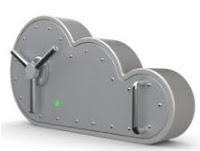No one likes to think about dying, but it’s the smart thing to do. It’s important to create a will that states what to do with everything you own, and it’s important to state what your wishes are should you be unable to make medical decisions for yourself. You might also let your survivors know of your burial preferences. The more you set out in writing, the easier it will be for your loved ones to take care of your final arrangements and remaining assets.
But have you thought of everything? There is one significant category that many people forget about but is essential to cover in your will: Digital assets. Your digital assets include things like your computer files, social networking profiles, email accounts, online bank accounts, files in cloud storage, and any other accounts you have set up online. What will happen to them when you’re gone, and how do you protect your personal information?
Name a Beneficiary
Your digital assets need to be included in your will, so make arrangements to have your current will amended to include instructions for them. You’ll need to name a beneficiary (or more than one) for your digital assets. You should state who will receive your computer files and cloud storage files. You should also state who you want to be in charge of all your online accounts.
Give Instructions
Now you need to decide what you want to be done with all of your online accounts. Most social networking sites and email providers have procedures for handling the accounts of people who have passed away, and they usually involve a beneficiary or family member providing proof of the account holder’s death. On some sites, like Facebook, you may have the choice of leaving your account up as a memorial or for all your information to be removed. Most email providers will allow you to close your account or have all of your messages exported to a beneficiary. Do you want your account information preserved and given to a beneficiary, or do you want it removed from the Internet as much as is possible? Give specific instructions for type of digital asset or each website.
Leave Account Information
Your will becomes public record after your death, so do not include login information for any of your accounts. All of your account information should be kept separately, and there are a few different ways you could preserve it for your beneficiary. There are websites, like LegacyLocker.com, that will allow you to store all of it and name the person who can access it after your death. You could create your own file, too. You cannot expect your loved ones to know all of your accounts, so make a comprehensive list of login and password information for every account that you want dealt with.
Inform Your Loved Ones
Finally, before your death it’s a good idea to let your loved ones or beneficiary know (if possible) about your wishes for your digital assets. Let them know where they’ll be able to find the necessary login information and instructions.
Written by S. Brown from www.authentify.com








